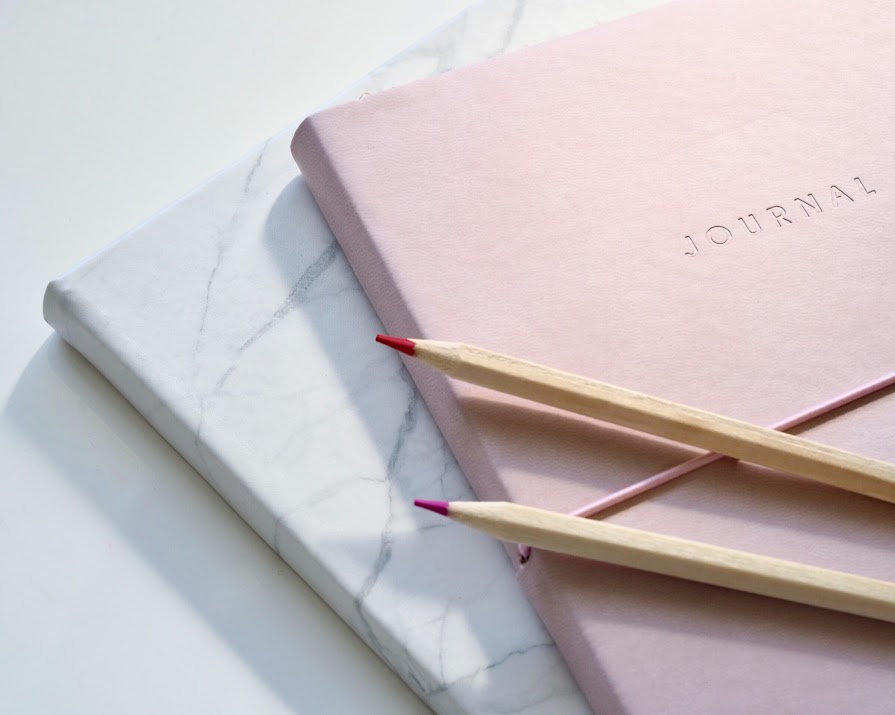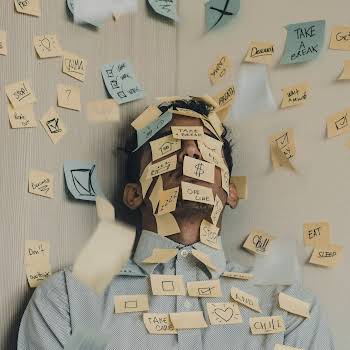
By Niamh Ennis
08th Nov 2023
08th Nov 2023
We have become quite used to hearing the words stress and anxiety being used interchangeably but in doing this the implication is that both words reflect the same experience which is inaccurate and a little misleading.
For example, you might find yourself feeling stressed at the fact that it looks likely that you’re going to miss an important work deadline because you procrastinated, or the traffic on your commute might be stressing because you really need to get there on time today or you are feeling stressed by the number of things that are currently on your to-do list. Somebody else however could describe these experiences as anxiety-inducing and talk repeatedly about how anxious these experiences are making them.
Personal perspective is, of course, at play here, not to mention your past experiences which are always based on what your habits and patterns inform you to feel. But what I’m hoping to encourage you to think about going forward is to bring your awareness to the differences between stress and anxiety and to just how you experience them and describe them in your own everyday life.
It’s important to note that there are some serious anxiety disorders that I will leave to those medically qualified to talk about, but for the purposes of this article, my intention is for this to help you become more considered in your response to certain situations and reduce the overwhelm which they inevitably bring with them.
According to the American Psychological Association – ‘anxiety is an emotion characterised by feelings of tension, worried thoughts, and physical changes’ whereas stress is defined ‘as the physiological or psychological response to internal or external stressors. Stress involves changes affecting nearly every system of the body, influencing how people feel and behave.’
Anxiety is not the same as fear and is a reaction to stressful situations such as those I mentioned above relating to worrying about work deadlines, traffic or an ever increasing to do list. The stress of these and how you react to them may in reality cause you over time to feel anxious. Whereas stress is usually caused from external triggers anxiety begins on the inside. Stress is often a trigger for anxiety but rarely does it happen the other way around.
There are three simple distinctions between stress and anxiety. 1. Stress tends to be related to specific events and thoughts. Anxiety is much more generalised. 2. Stress is grounded in reality and refers to things that are happening around us; while anxiety comes from catastrophic thinking.
3. Stress is temporary but anxiety can be long lasting and its impact can be felt indefinitely.
MANAGING YOUR STRESS
If you are feeling under stress, you will likely experience a variety of mental and physical symptoms, such as anger, frustration, irritability, physical pain in your body, some digestive problems and inevitably have difficulty sleeping. Anxiety, on the other hand, is defined by constant, disproportionate and excessive worries that persist even after what has caused the initial stress has moved on.
Your natural reaction when you are feeling stressed is to try and quickly remove it, but I want you to consider if this might be your way of trying to control the uncontrollable. Some stresses in your life are non-negotiable, some you need to learn to live with, some you even choose to stay motivated; some keep you focused on the job in hand, and some are even necessary to keep progressing in life. The point is that not all stresses are bad stresses and the belief that you can or should aim to remove them from your life will not serve you in learning how to cope with life’s challenges.
Take for example, feeling nervous ahead of a performance or a presentation as a portrayal of good stress. Your body, in reacting to the stress you’re feeling, is preparing to help you to perform at your optimum. You need those nerves. Think of the number of times you’ve heard actors report that feeling nervous before they go on stage is a good thing. This is when they know they are about to do something meaningful when they are most present and feel most alive.
ADDING TO YOUR TOOLBOX
So now that you have a better understanding of the differences between stress and anxiety, and you recognise when each is present in you, the next thing is to look at equipping your personal toolbox to manage your responses in the future. Don’t be tempted to skip over this part thinking you’ve heard it all before but challenge yourself to thinking ‘how could I use these to assist me managing stress better in my life?’. Not everything here will work for everyone so just look for the one that appeals most to you and start there.
Journaling
For me this will always be the most powerful tool, and forever top of my list, as it gets those negative thoughts and patterns that lead to catastrophising out of our heads and on to paper. We can then identify and monitor them when we see the patterns emerging.
Mind your language
Somewhat linked to journaling but observing the language we use when we talk to ourselves about ourselves is significant. Our mind hears what we feed it and it can’t distinguish between self-deprecation, sarcasm and self-ridicule. It hears the words and believes them. Be mindful of this.
Get grounded
Get out into nature. This might seem like a lofty request but slowing down, pausing, taking a breath by getting out into nature, breathing in the fresh air, moving your body is probably the most effective and least expensive way to instantly manage and reduce your feelings of stress.
Get clarity on your values
Knowing just what your values are for where you are in your life currently, what matters most to you right now, will really help you get closer to know what it is you want to do with the rest of your life, who you want to become and this has been proven to be an instant de-stressor by providing you with feelings of hope and possibility.
Ask for help
This one requires sharing some vulnerability on your part which I acknowledge isn’t always easy. But working on the principle of a problem shared is a problem halved, speaking to someone will honestly help. If you can’t find a suitable professional look to your own circle and find someone who you know you can trust and whose opinion you respect. Remember you were never supposed to do this on your own.
You may have been surprised that I didn’t include a discussion about your social media intake and the dangers of comparing your life to someone else’s. My thinking here is that while social media can exacerbate your stress levels, you need to acknowledge that the existence of stress in your life is your responsibility and yours alone. But the good news here is that this means that you always have the power to control and change it. So when you’re facing into the next stressful time in your life try to remember author Robert Schuller’s words; ‘Tough times never last, but tough people do.’
Niamh Ennis is Ireland’s leading Change & Transformation Coach and Author of GET UNSTUCK who through her private practice, writings, programmes, workshops and podcast has inspired, activated and helped thousands of people to make significant changes in their lives. She is an accredited Personal, Leadership & Executive Coach and the Lead Coach in the IMAGE Business Club. If you would like to work privately with Niamh visit niamhennis.com/reset and follow her on Instagram at @1niamhennis.
Photography by Jess Bailey on Unsplash.
This article was originally published in January 2023.























